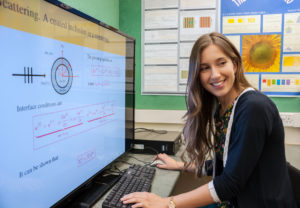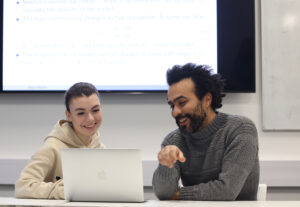How you'll learn
Your learning activities will consist of lectures, tutorials, practical classes, problem classes, private study and supervised project work.
In Year 1, lectures are supplemented by a thorough system of group tutorials and computing work is carried out in supervised practical classes. Key study skills, presentation skills and group work start in first-year tutorials and are developed later in the programme. The emphasis in most modules is on the development of problem solving skills, which are regarded very highly by employers.
Project supervision is on a one-to-one basis, apart from group projects in Year 2.
How you're assessed
Most modules are assessed by a two and a half hour examination in January or May, but many have an element of coursework assessment. This might be through homework, class tests, mini-project work or key skills exercises.
Liverpool Hallmarks
We have a distinctive approach to education, the Liverpool Curriculum Framework, which focuses on research-connected teaching, active learning, and authentic assessment to ensure our students graduate as digitally fluent and confident global citizens.
The Liverpool Curriculum framework sets out our distinctive approach to education. Our teaching staff support our students to develop academic knowledge, skills, and understanding alongside our graduate attributes:
- Digital fluency
- Confidence
- Global citizenship
Our curriculum is characterised by the three Liverpool Hallmarks:
- Research-connected teaching
- Active learning
- Authentic assessment
All this is underpinned by our core value of inclusivity and commitment to providing a curriculum that is accessible to all students.








